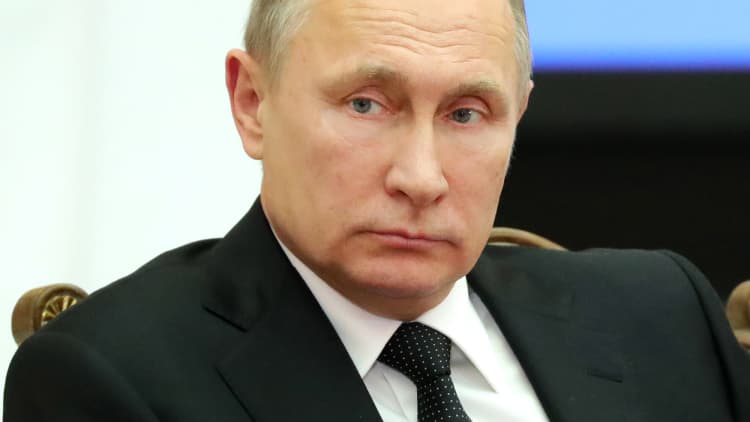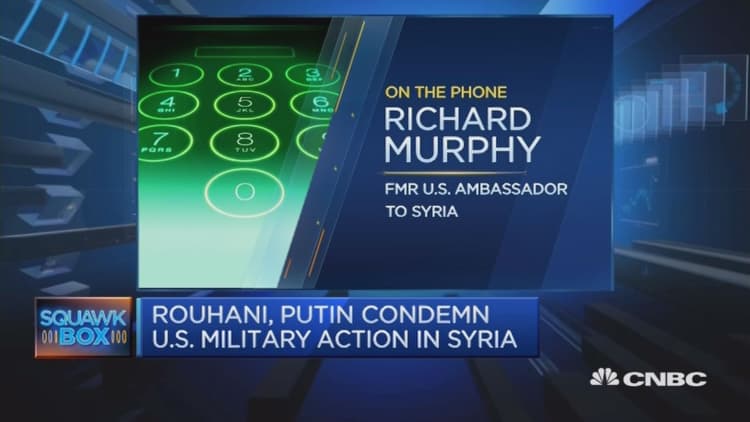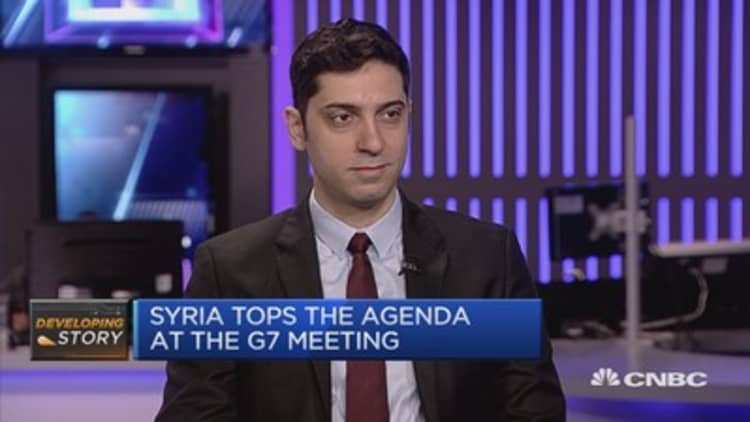
Relations between the U.S. and Russia are "in their worst period since the end of the Cold War," the Kremlin said Tuesday — just as America's top diplomat arrived on a visit.
As Secretary of State Rex Tillerson traveled to Moscow for a meeting with his counterpart Sergei Lavrov, Russia's foreign ministry spoke of "a long list of irritants created by Washington."
Vladimir Putin went further, comparing America's accusations of a chemical attack in Syria to its justification of the Iraq invasion. "We saw this before," Russia's president told reporters. "It reminds me the events of 2003."
More from NBC News:
Special Elections Give Democrats a Chance to Make a Big Statement
Arkansas Executions: Damien Echols, Ex-Death Row Inmate, Will Speak for Condemned
Stockholm Truck Attack Suspect Rakhmat Akilov Admits Terrorism: Lawyer
Tillerson's visit takes place against a backdrop of escalating tensions, and it remained unclear if Trump's top envoy would even meet Putin during the trip.
"It's clear that Russian-American relations are in their worst period since the end of the Cold War," the foreign ministry said. "The previous U.S. administration has done all it could to exacerbate them."

It came after U.S. Navy Admiral Michelle Howard said the Mediterranean Sea has
The recent suspected chemical weapons attack by Syria and the swift U.S. military response
The foreign ministry statement said Russia hoped to learn Trump's strategy on a number of foreign policy problems.
"We expect to hear about what the U.S. plans on doing in Libya, which has ended up de-facto split, same as Iraq, due to a NATO military intervention," it said.
"What is the strategy for Yemen, where American weapons are used for massive city bombardments, which cause civilian deaths and exacerbates a humanitarian catastrophe?" the statement added, referring to the conflict in Yemen where U.S. allies in the Gulf are bombing a desperately poor population.
It said Russia was "very concerned" about Trump's recent suggestion that if necessary America would act alone to contain North Korea, which has ratcheted up both its bellicose rhetoric and weapons testing.
"As for the bilateral agenda, the long list of irritants created by Washington is not decreasing," it said.
Before leaving the G-7 summit in Italy
"I think it is clear to all of us that the reign of the Assad family is coming to an end, but the question of how that ends and the transition itself could be very important, in our view, to the durability ... of a unified Syria," Tillerson said.
"I hope that ... the Russian government concludes they have aligned themselves with an unreliable partner in Bashar al-Assad."
In his separate comments, Putin also claimed that Russia had information that chemical weapons would be planted in Syria in order to discredit Assad's regime. He repeated his call for an independent U.N. investigation into last week's suspect gas attack, near Idlib.
Watch: Eurasia Group says Russia won't cut Assad loose


